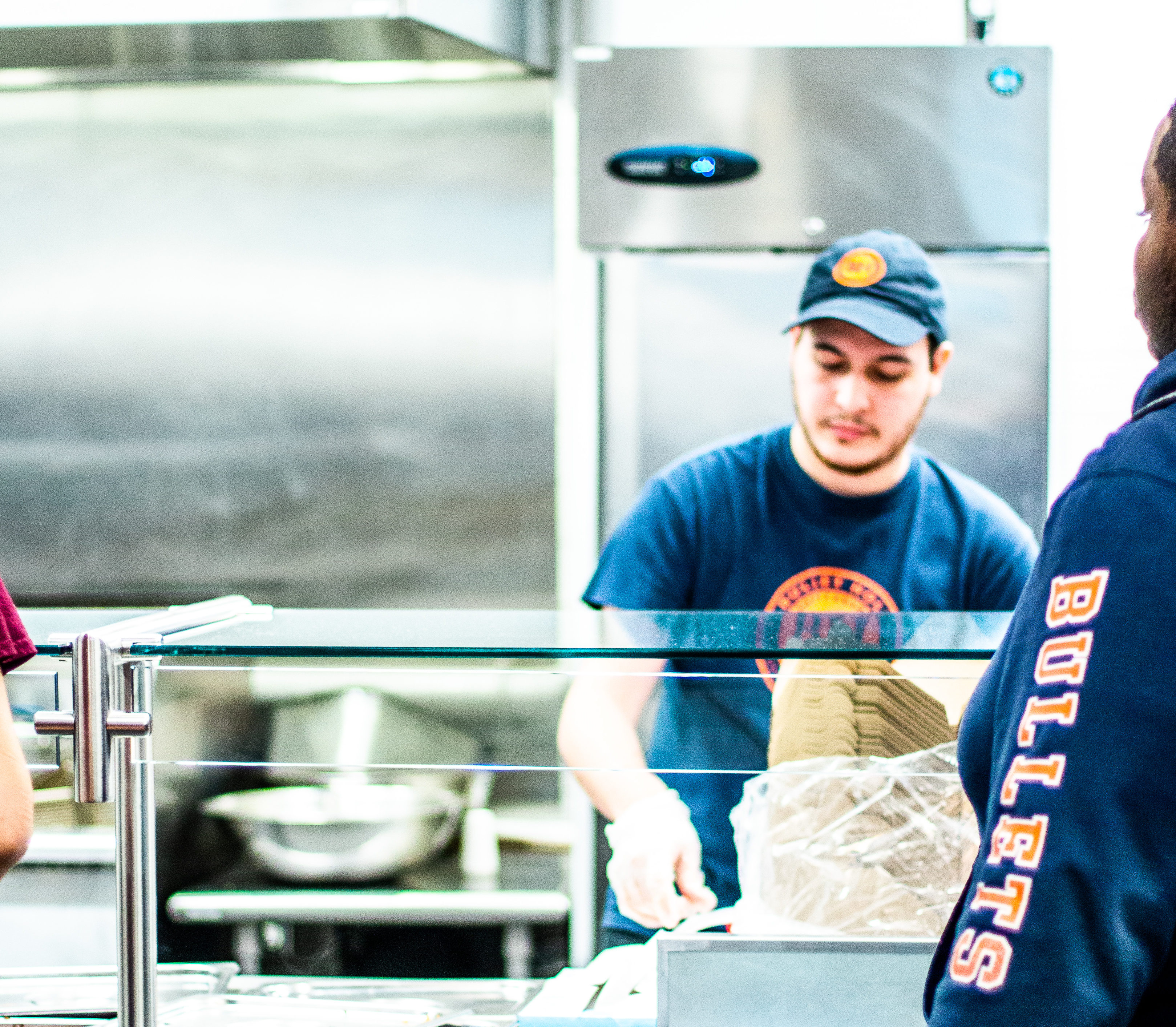Reusable Containers Only Part of Bullet’s New Efforts Towards Sustainability

A Bullet Hole employee serves food using the new cardboard to-go containers (Photo Allyson Frantz/The Gettysburgian)
By Katherine Scott, Features Editor
2,500 people come through the Bullet Hole every day, which creates the potential for a lot of waste. Dining Services has, however, been at the forefront of campus sustainability efforts, and, over winter break, the Bullet Hole made many changes in the efforts to become more environmentally friendly. While some changes are conspicuous — like reusable cups and paper to-go containers — others are behind-the-scenes.
Mike Bishop, the College Union Food Service Manager, said that Dining Services is working to encourage students to make sustainable choices. Bullet now offers reusable cups, but Bishop said that people eating at Bullet or Commons are allowed and encouraged to bring their own tumblers and reusable cups for a small discount. Bullet did get rid of the paper straws and replaced them with ones that are, once again, plastic, but these new straws are compostable and made from recycled materials. Bishop says the reason for this is that there were so many complaints not only from students, but also from alumni when they came to visit. Nadine Snyder ’21, who chairs the Student Senate Sustainability Committee, expressed interest in having Bullet sell reusable straws, similarly to the reusable bags, which people can use and eliminate straws altogether.
Aside from changes to straws, cups, and containers, Bullet has made changes to the types of food it is serving with an emphasis on local production. Martin’s Rolls, which is based in Chambersburg, now supplies rolls and other bread products, replacing suppliers based in New England and Philadelphia, and a local egg farm now supplies fresh shell, cage free, and non-GMO eggs.
Bullet has also changed its menu, implementing Plant-Based Mondays. Bishop said that he was reluctant to go completely meatless so instead, worked to add more options to the menu. To the hot line alone, 10 plant-based items were added and, so far, Bishop thinks this has been fairly successful. 140 plant-based bowls went out the week of January 26 and Bishop expects that 200 bowls are expected to be sold the next week. Snyder, a vegetarian herself, said, “More could be done, I’m happy that they are having meatless options now.”
One of the biggest changes Bullet has recently made is their oil recycling system. Before, Bullet would purchase large amounts of oil containers, which produced lots of plastic waste and oil waste. Now, their oil supplier will deliver 100 gallons of oil to Bullet and then take away the old oil to recycle it into various oil-based products.
As for the cost of these changes, Bishop stated that although the blue cups initially costed $1,200, they are off setting themselves over time. Of course, also over time, Bullet will need to replace these cups when they get lost, broken, or accidentally thrown out. Bullet does, however, work with facilities in order to gather any cups that were thrown out or left in common areas and return them to Bullet so they can be cleaned and used again. The paper to-go containers are much more expensive than their plastic counterparts, but Bishop hopes the savings from the cups will offset the expense of the containers.
Moving forward, reusable to-go containers seem to be the next frontier. Bullet tried this before, essentially having students bring in a reusable container, get their meal, and return the container to Bullet so it could be cleaned, but students stopped bringing their containers back to be cleaned. Bishop said that if Bullet were to try this again, some kind of financial incentive or discount might be necessary.
